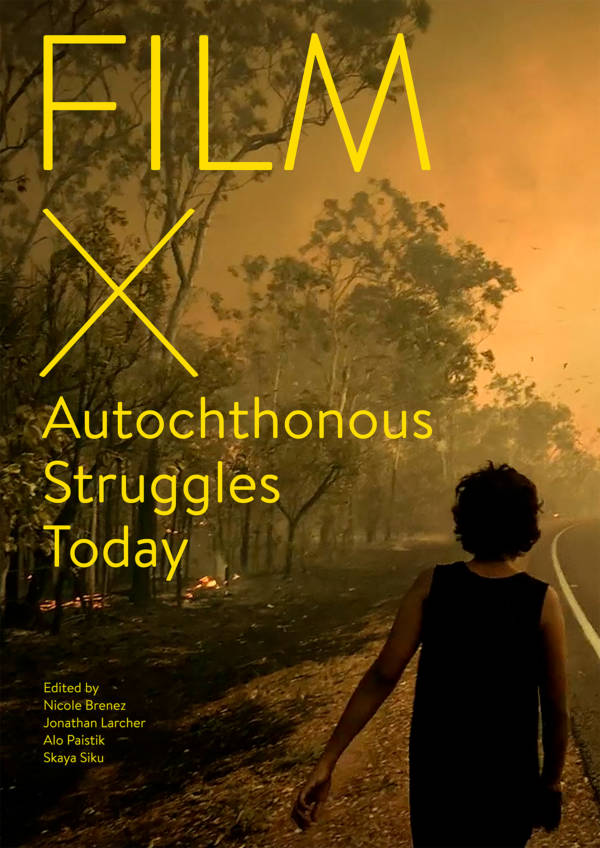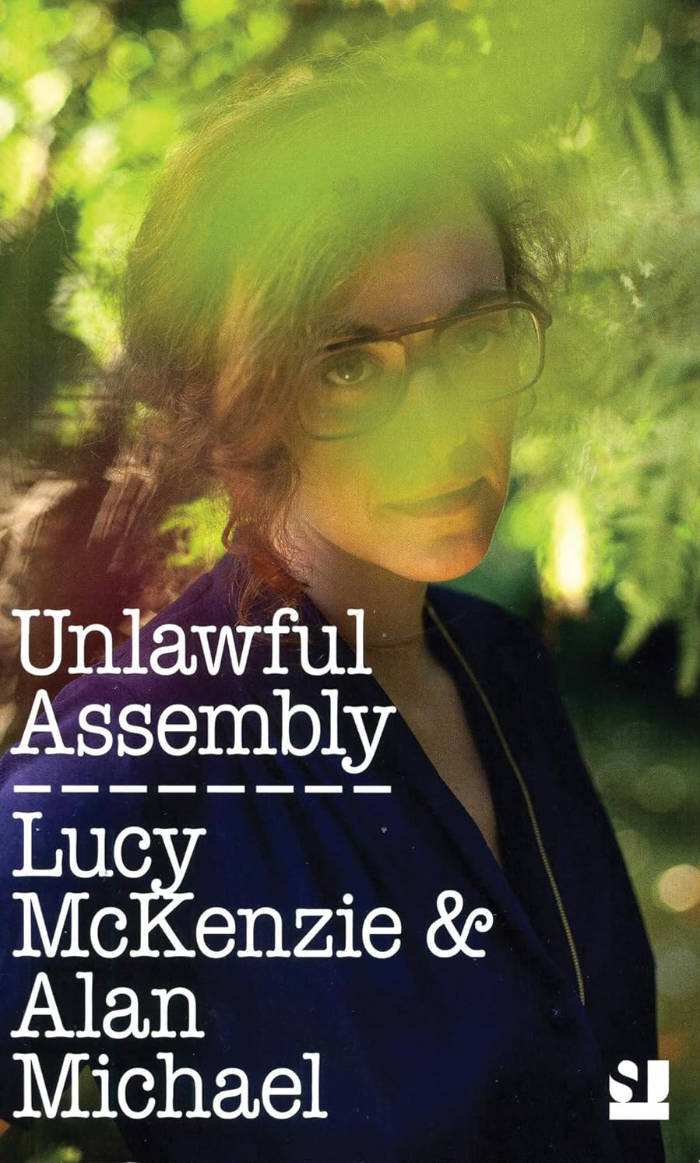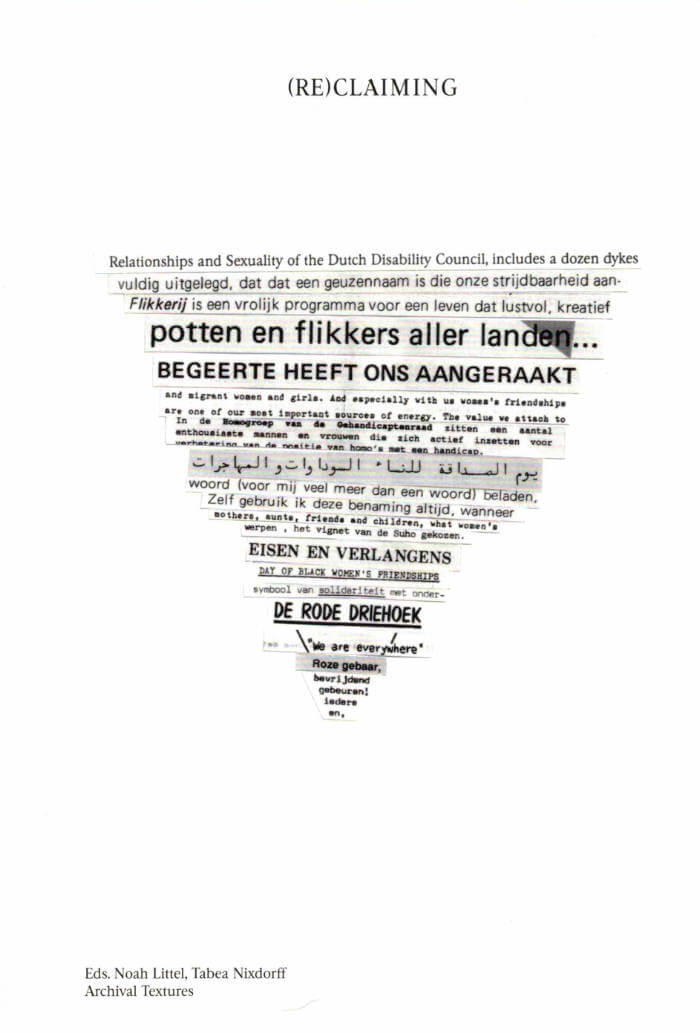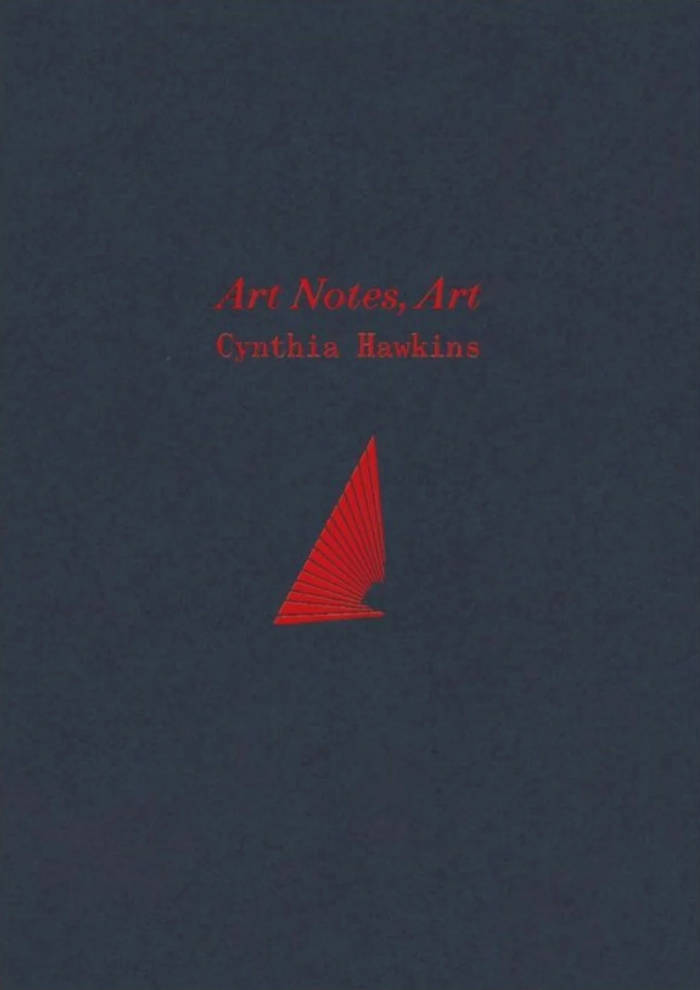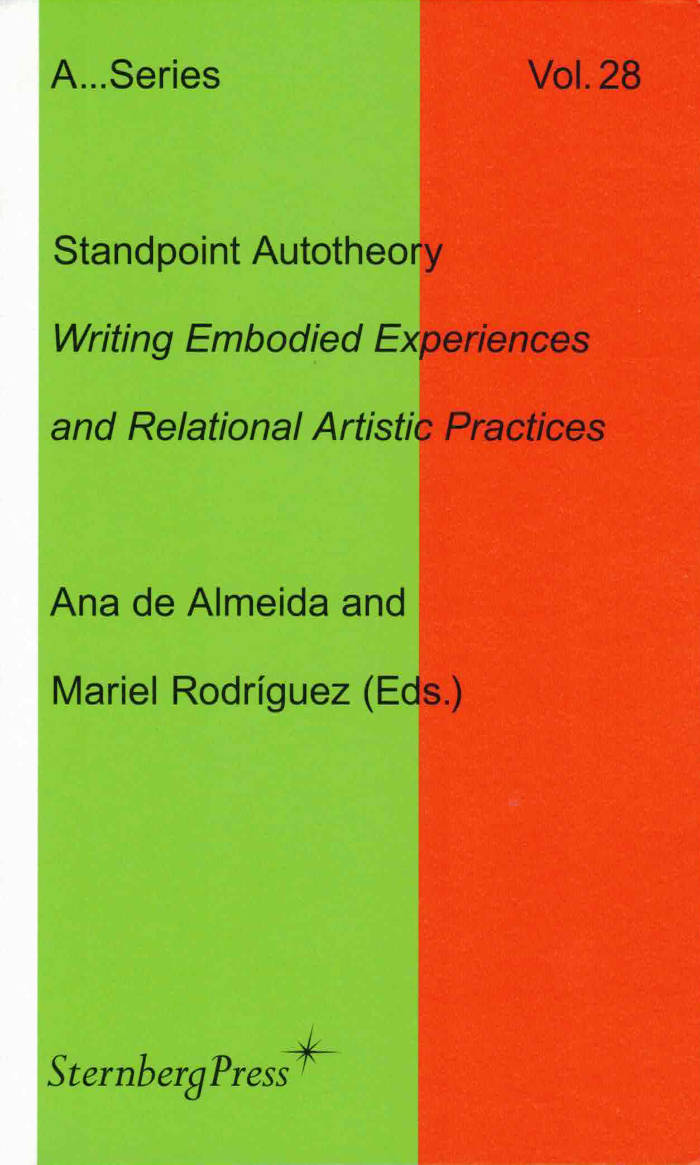
Standpoint Autotheory – Writing Embodied Experiences and Relational Artistic Practices
Ana de Almeida ed., Mariel Rodríguez ed.
In this anthology of essays, twelve artists explore radically self-reflexive research attitudes integrating embodied experiences within the production of theory.
Standpoint Autotheory encompasses a multitude of manifestations of radically self-reflexive research attitudes. It traces research based artistic practices through twelve contributions that propose a performative integration of the personal within the production of theory and explore the entanglements of subjectivity with criticality aimed at social transformation by questioning dominant epistemologies.
The positions assembled in the book are permeated by different modes of thinking and practice such as autoethnography, practices of the self, auto-historia teoría, standpoint theories, strong objectivity and situated knowledge, self-authority, narrativity and storytelling, radical positioning, performative philosophy, autofiction, thinking-feeling, and other methods that, through the interrogation of embodied experiences, illuminate the connections between the personal and the political, as well as the individual and the communal.
Edited by Ana de Almeida and Mariel Rodríguez.
Contributions by Ana de Almeida, andrea ancira, Cana Bilir-Meier, Nina Hoechtl, Olena Khoroshylova, Sanja Lasić, Mai Ling, Stephanie Misa, Lena Ditte Nissen, Mariel Rodríguez, Ruth Sonderegger, Elif Süsler-Rohringer, Verena Melgarejo Weinandt.



